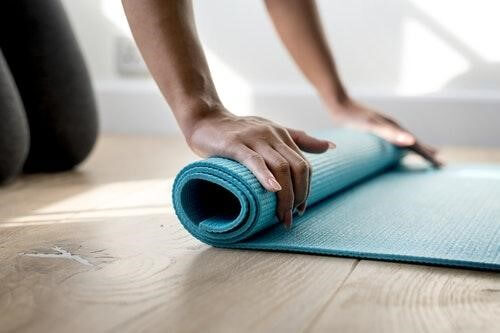
This post was written by an external contributor. Christian Lynn shares some advice from fellow students on how to deal with stress.
First term is now in full swing, and Freshers’ is almost a distant memory. Now the essays are going to pile up. The exams are going to glare at you, beckoning you to spend a dreadful day out with them. And of course sleep is going to become a distant memory.
You may be wondering why I’m starting off an article so negatively. Well, it’s because I think it’s time that we faced this issue head on, and that is stress. The parties are dying down and – in classic Teletubbies style – the sun is going away. So naturally, the mood drops and we begin to worry about everything that could go wrong in our academic year.

As a postgrad that has lived to tell the tale, I’m here to share some advice to help ease the burden of the stress. But rather than give you my entire life story (I’m kind of hoping that the autobiography is going to write itself at this point), I want to offer some solutions to your stressful troubles from the best possible source: YOU!
Talking to a number of students across different universities, I wanted to get a personal picture on the kind of methods students use to cope during stressful periods. Because no matter how many times we’re told otherwise, there’s no understanding stress, only dealing with it in a way that’s healthy, productive and isn’t time-consuming. So, I’d like to turn you towards some ideas proposed by friends and fellow students.
Seren – Queen Mary University of London

“When I’m stressed, I have to make time for myself. It could be an evening in with Netflix and a glass of wine or a solo trip to the cinema. But be sure to give yourself a break! Nothing can work against you more than fatigue for work or uni: just make sure to give yourself time from it!”
Alistair – University of Exeter
“So when I’m feeling stressed, I usually call someone I know I can trust (e.g. parents or friends) because I know I’m probably overthinking whatever is making me stressed and they can help me refocus on the positives, opening my eyes to the fact that I might be overthinking it.
Reece – Canterbury Christ Church University

“If I’m stressed out about essay deadlines or word counts, I just take five to ten minutes to sit down and try to take my mind off whatever it is that I’m doing and breath until I calm down. Having the noise of a fan on tends to help me relax as well. Anything that can help distract me for a short period, before I go back to it.”
Dawn – University of Portsmouth
“I deal with stress by doing things I enjoy like drawing or watching movies I love. This still engages the brain, but on a different level to the academic stuff. It gives your brain a breather! But when it gets really hard, leaving the house altogether is my preferred option: to get some fresh air and talk it out with my friends.”
Jacob – Queen Mary University of London

“Dealing with stress, I tend to take myself away from whatever I’m working on: if it’s a laptop, I turn to a book or magazine for example. Netflix shouldn’t be the only answer! There’s also a consensus among scientists that even just walking outside can boost your concentration and your creativity. Walking is fine but if possible, go for a run or a cycle. The gym is another strong option.”
Ally – University College London
“The prospect of failure, disappointing our parents, falling behind our classmates can be so terrifying, we become paralyzed. So the best way to reduce stress and end this cycle is be proactive, but only a small step at a time. Set yourself to read one chapter today. Although counterintuitive, it can also help to cover the most enjoyable content first. Not only will this make you feel like the amount of work is decreasing, but it also gives you a little confidence boost before approaching the dreaded stuff.”
So hopefully those contributions give you some simple solutions to the stressful weeks coming up. Anything as obvious as taking a five-minute respite, to something that requires some proper motivation like the gym, can activate your brain and get you going, headed towards that grand graduation.
It’s not all about confidence or ability. It’s simply about care, for yourself and your work. And if you take time to reduce the stress, then ultimately you’ll produce better work. And who doesn’t want that?!
Connect with Debut on Facebook, Twitter, and LinkedIn for more careers insights.


